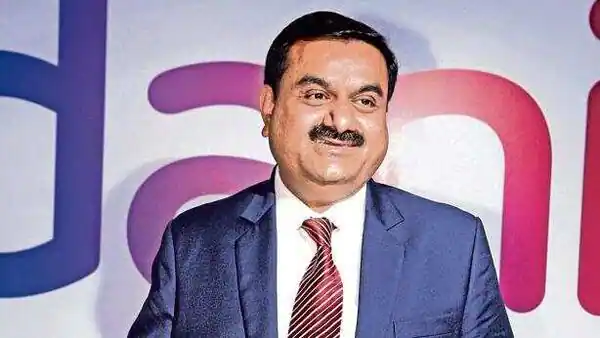[ad_1]
Some long-serving board members of the two cement makers will step down following the takeover of Holcim India’s ownership in the two firms by Adani Group in a $10.5 billion acquisition, the people said, requesting anonymity.
“The boards of ACC and Ambuja Cements are likely to witness the change in their composition on 16 September, following board meetings,” one of the two people said.
Emails sent to spokespeople for Adani Group, Holcim, Ambuja Cements and ACC did not elicit any response.
Some existing board members likely to step down from the two cement makers’ boards include N.S. Sekhsaria, Jan Jenisch, Neeraj Akhoury and Martin Kriegner, the person said.
Adani Group completed its due diligence of the two cement makers a few days ago, while the mandatory open offers for the public shareholders concluded with a lukewarm response.
The two simultaneous open offers by Adani Group to acquire 26% additional stakes each in ACC and Ambuja Cements closed on Friday.
The offers for shares of both companies opened on 26 August. The open offers were launched by the Adani Group’s Mauritius-based firm, Endeavour Trade and Investment.
Currently, the ACC board has 12 members, including Sekhsaria, Jenisch, Kriegner, Sridhar Balakrishnan, Akhoury, Falguni Nayar, Vinayak Chatterjee, Shailesh Haribhakti, S.K. Roongta, Damodarannair Sundaram, Sunil Mehta and Life Insurance Corp. of India chairman M.R. Kumar.
Ambuja Cements’ board comprises 15 members, including Sekhsaria, Jenisch, Nasser Munjee, Rajendra P. Chitale, Haribhakti, Omkar Goswami, Shikha Sharma, Christof Hassig, Kriegner, Then Hwee Tan, Ranjit Shahani, Ramanathan Muthu, Mario Gross, Arun Kumar Anand and Akhoury.
On 19 August, Adani Group received the Securities and Exchange Board of India’s (Sebi) approval for taking over the two cement companies, following Holcim Ltd’s decision to sell its majority stakes in the two firms in May to Adani Group.
Gautam Adani currently serves on the boards of at least 11 companies, while Karan and Pranav each serve the boards of at least 10 different firms.
Pranav is currently the managing director of the agriculture, oil and gas business of Adani Group and a director of Adani Enterprises, the listed flagship of Adani Group. He also serves as a director of Adani Wilmar Ltd, whose flagship food brand Fortune commands over 20% market share in India’s edible oil segment, and heads Adani Realty.
On the other hand, Karan is CEO of Adani Ports and SEZ Ltd, the conglomerate’s largest business. He is also a director of Adani Airport Holdings Ltd.
While Karan is the tech-savvy scion of the Adani family leading the group’s innovations in the ports business (Adani’s mainstay), Pranav is primarily known for his acumen in the group’s M&A deals and forging expansion strategies, according to Adani Group insiders.
Gautam Adani’s younger son Jeet is the vice-president of finance of Adani Group, and his role involves working with all the listed verticals of the Adani Group. Jeet is also spearheading Adani’s airports business as well as Adani Digital Labs, which is working on building a super-app to cater to all consumers of Adani Group businesses.
It could not be ascertained if Jeet would also be given a membership on the boards of ACC and Ambuja Cements.
However, most of the existing independent directors of ACC and Ambuja Cements are likely to be re-appointed and retained after the acquisition, according to the two people cited above.
“Their (independent directors’) advice has played a key role in preserving corporate governance, ensuring the safety of public shareholders and filtering out the best possible board decisions during the growth years of Ambuja Cements and ACC. So, their presence is desired even after the acquisition,” the second person said.
“Adani Group is likely to draft new expansion plans for both Ambuja Cements and ACC after the board-level changes. The capacity expansion will be in line with Adani’s ambitions in the ports business, infrastructure and realty. For this, a strong, diversified board is required. Apart from members from the Adani family, some new board members may be introduced to the boards of the two companies,” said the second person, adding that the group does not have immediate plans to combine or merge the two businesses of Ambuja Cements and ACC post the acquisition.
While the group has over two decades of experience in infrastructure and realty business, cement manufacturing is a relatively new area.
“That’s why a large number of employees and key people from ACC and Ambuja Cements, who are responsible for running the day-to-day business of cement, are likely to be retained after the acquisition. There would, however, be some changes in the leadership positions,” said the second person.
In the two open offers, shares of Ambuja Cements and ACC were offered to be bought by Adani Group at ₹385 per share and ₹2,300 apiece, respectively.
The shares of ACC Ltd settled at ₹2,365 on the BSE, 2.82% higher than the offer price, while Ambuja Cements shares closed at ₹453.90, 17.9% higher when the open offer ended on Friday.
Currently, Ambuja Cements and ACC have a combined installed production capacity of 70 million tonnes per annum. The two companies together have 23 cement plants, 14 grinding stations, 80 ready-mix concrete plants, and more than 50,000 channel partners across India.
The takeover is set to position the Adani Group as India’s second-largest cement producer after Ultratech
Download The Mint News App to get Daily Market Updates & Live Business News.
More
Less
Post your comment
[ad_2]
Source link








